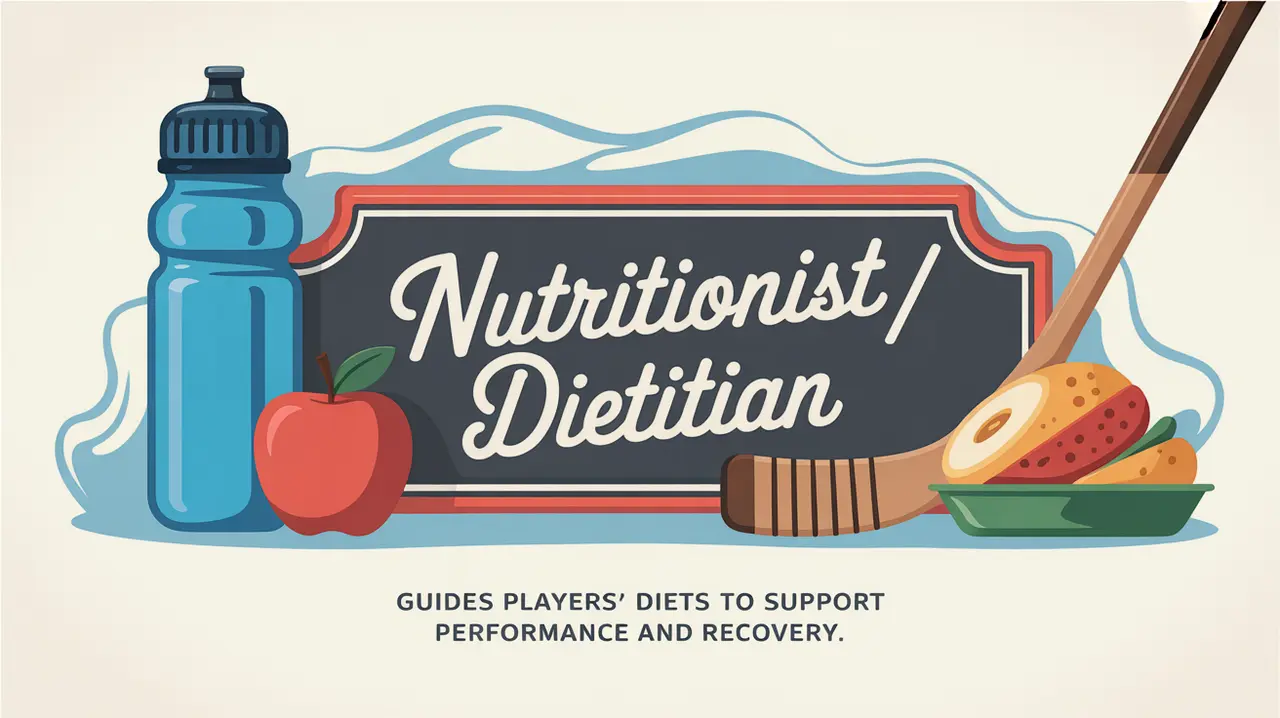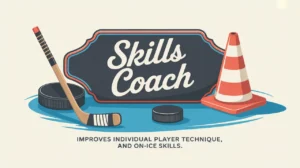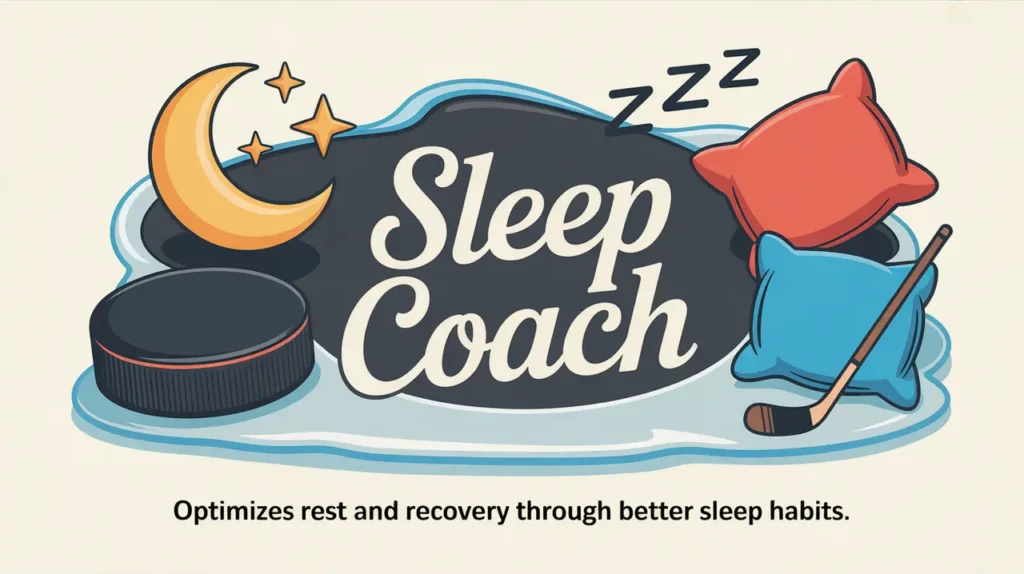Jim’s Intro to the Nutritionist / Dietitian
Hi folks, Jim here, the only commentator who once tried a team nutrition plan and got caught sneaking donuts between periods.
What is a nutritionist or dietitian?
A sports nutritionist or dietitian is a specialist who designs and monitors athletes’ dietary plans to optimize performance, recovery, and long-term health. Their job is to ensure players have the right energy balance, nutrient timing, and hydration strategies to handle the physical demands of training and competition.
While strength coaches build the engine, nutritionists provide the premium fuel that makes it run smoothly and efficiently.
How does it work?
The nutritionist shapes performance through individualized planning, education, and precise timing:
Assessment and Baseline
- They start by evaluating players’ current dietary habits, body composition, and performance needs.
- This includes understanding metabolism, activity levels, and individual goals (e.g., adding lean mass, improving endurance).
Meal Planning and Macronutrient Balance
- Nutritionists build plans that balance carbohydrates, proteins, and fats to match training loads.
- Carbs fuel high-intensity effort, proteins support recovery, and fats provide sustained energy.
Timing and Game-Day Strategy
- One of their biggest focuses is nutrient timing; what to eat before, during, and after practices or games.
- Proper fueling before a game enhances energy, while post-game nutrition aids recovery and reduces fatigue.
Hydration Protocols
- Nutritionists monitor fluid and electrolyte intake to prevent dehydration and cramping.
- Players are taught how to hydrate consistently, not just reactively.
Education and Habits
- They teach players how to read labels, build balanced plates, and make smart travel or road-trip choices.
- For younger athletes, this often involves parents and guardians to ensure consistency at home.
- Special Considerations
- They adapt plans for allergies, sensitivities, cultural preferences, and developmental stages.
- In elite settings, nutritionists may also work with chefs or catering services for team meals.
Common Situations Involving Nutritionists / Dietitians
- Preseason Body Composition Goals: Adjusting intake for lean mass gain or fat reduction.
- Game-Day Fueling: Planning meals and snacks around warmups and puck drop.
- Recovery Windows: Ensuring immediate post-game nutrition is available.
- Travel Schedules: Creating portable, practical plans for tournaments or road trips.
- Hydration Checks: Monitoring urine color charts, sweat rates, or body weight changes.
How do you make good decisions with it?
Great nutrition programs rely on individualization, consistency, and clear communication.
- Match Intake to Output: Energy in should reflect training and competition demands.
- Prioritize Whole Foods: Supplements help, but real food is the foundation.
- Be Consistent: One good pregame meal won’t fix weeks of poor eating.
- Adapt to Growth and Change: Plans should evolve with age, goals, and performance levels.
- Involve Players and Parents: Education builds habits that stick.
How do you master it?
Mastering the nutritionist role requires deep knowledge of sports nutrition science, strong communication skills, and practical problem-solving. Great nutritionists know how to translate complex dietary principles into simple, sustainable routines, and they adapt their advice to different personalities, ages, and competition levels.
What does it look like when done right?
A great nutritionist produces players who sustain energy throughout games, recover quickly between sessions, and maintain lean, powerful physiques. Cramping, sluggish starts, and mid-season burnout are reduced, while consistent performance and resilience go up.
Commentator’s Corner
Jim’s Take
The nutritionist is like the team’s fuel engineer. You can have the best car on the ice, but bad fuel will make it sputter at the worst times.
Parent Tip
Good habits start at home. Supporting balanced meals and hydration routines goes a long way in reinforcing what the nutritionist teaches.
Player Tip
You can’t out-skate a bad diet. Consistency beats fads every time. Fuel your body the way you expect it to perform.
A Final Thought
The nutritionist or dietitian is the strategic fuel manager, blending science and practicality to keep players performing at their best. When mastered, the role combines knowledge, timing, and habit-building, turning nutrition from an afterthought into a competitive advantage.









